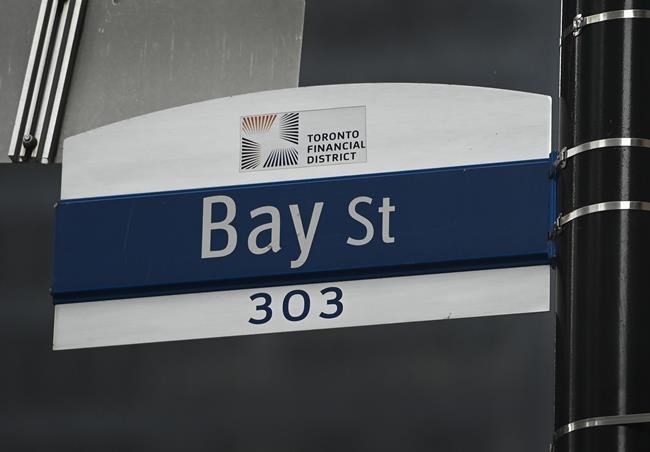TORONTO — The U.S. Federal Reserve gave North American stock markets a boost as it announced the economy was strong enough to begin tapering monetary stimulus later this month.
"Initially there was very little reaction and then it pretty much turned positive on the bond and the stock market," said Michael Currie, vice-president and investment adviser at TD Wealth.
The central bank said in a unanimous decision that it would pare its US$120 billion per month bond purchases by US$15 billion a month. The reduction would be completed by mid 2022 before it considers raising interest rates. However, the pace could be accelerated if needed.
The cut in stimulus measures that were added at the start of the pandemic was expected by markets because the U.S. economy is gaining strength.
The move was viewed as neither hawkish nor dovish even as the Fed continued to insist that inflation is transitory but more persistent than previously thought.
That echoes the Bank of Canada's position on inflation.
"Even though inflation's been dragging on at a 30 year high for a long time now and all of the supply chain issues and tight consumer demand and wages going up, (the Fed) refused to take the word transitory out of the inflation discussion," Currie said in an interview.
"So people who have been looking for rate hikes, perhaps towards the second half of the year next year, might be taking some good news from this report today."
The U.S. dollar moved higher, with the loonie trading for 80.53 cents US compared with 80.62 cents US on Tuesday.
The S&P/TSX composite index closed up 95.09 points to 21,265.10 after hitting an intraday high that was 26 points off its recent record high.
U.S. stock markets all set new records despite some early softness.
In New York, the Dow Jones industrial average was up 104.95 points at 36,157.58. The S&P 500 index was up 29.92 points at 4,660.57, while the Nasdaq composite was up 161.98 points at 15,811.58.
Health care, real estate, consumer discretionary and financial were the leaders.
The sector that includes cannabis producers and pharmaceuticals gained 3.3 per cent as Bausch Health Companies Inc. increased 5.5 per cent to partially reverse heavy Tuesday losses following its quarterly results.
The inflation sensitive real estate sector climbed 1.4 per cent while Sleep Country Canada Holdings Inc. led discretionaries higher.
The heavyweight financials sector rose 0.8 per cent ahead of Thursday's announcement by the Canadian banking regulator where it is expected to lift a moratorium on raising dividends and share buybacks.
Materials rose even though gold prices fell as a private sector jobs report showed U.S. payrolls were better than expected.
The December gold contract was down US$25.50 at US$1,763.90 an ounce and the December copper contract was down 4.5 cents at US$4.32 a pound.
The energy sector was the big laggard, losing one per cent as crude oil prices fell as U.S. stockpiles rose for a second-straight week. Industrials dipped even though Air Canada shares increased 3.9 per cent.
The December crude oil contract was down US$3.05 at US$80.86 per barrel and the December natural gas contract was up 12.8 cents at US$5.67 per mmBTU.
Shares of Imperial Oil decreased 3.8 per cent while Whitecap Resources Inc. was down 2.7 per cent. Partially offsetting the sector's drag was a 1.2 per cent boost for Cenovus Energy Inc. shares after it announced an increase in dividends and share buybacks.
"The markets very much like that news, just like there was similar news from Suncor a week ago," said Currie.
The increase in crude inventories is believed to be temporary during the refinery maintenance season.
U.S. President Joe Biden is trying to convince OPEC to raise production levels as demand returns, without much success.
"The U.S. doesn't want to drill but OPEC doesn't want to increase production either so that's pushing oil down a little bit."
This report by The Canadian Press was first published Nov. 3, 2021.
Companies in this story: (TSX:AC, TSX:BHC, TSX:IMO, TSX:WCP, TSX:SU, TSX:CVE, TSX:GSPTSE, TSX:CADUSD=X)
Ross Marowits, The Canadian Press




